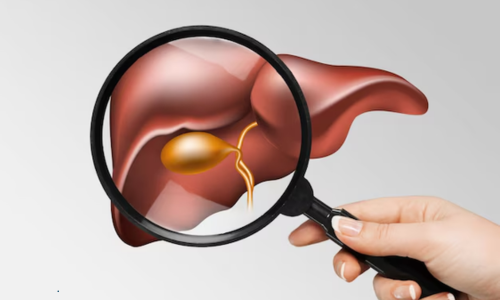Fatty liver disease has become one of the most common liver disorders worldwide, affecting people of all ages and lifestyles. A hepatologist, a specialist in liver health and diseases, plays a key role in diagnosing, managing, and reversing fatty liver through tailored treatment plans. If you’re looking for expert care, consulting a hepatologist in Kochi, Kerala can help you manage the condition effectively and protect your long-term liver health.
Understanding Fatty Liver Disease
Fatty liver disease occurs when excess fat builds up in liver cells. When more than 5–10% of the liver’s weight is fat, it’s considered fatty liver. The condition can be categorized into two main types:
-
Non-Alcoholic Fatty Liver Disease (NAFLD):
Occurs in people who drink little or no alcohol. Closely linked to obesity, diabetes, and high cholesterol. -
Alcoholic Fatty Liver Disease (AFLD):
Caused by excessive alcohol consumption that leads to fat accumulation and inflammation.
Both conditions can progress silently and, if untreated, may lead to liver inflammation, fibrosis, cirrhosis, or even liver cancer.
Why Hepatology Expertise Matters
Hepatology is the branch of medicine focused entirely on the liver, gallbladder, bile ducts, and pancreas. Hepatologists bring deep expertise in managing complex liver disorders. They not only treat the symptoms but also identify the underlying causes — such as metabolic imbalance, alcohol use, or medication effects — ensuring a personalized and holistic recovery plan.
Diagnosis: How Hepatologists Detect Fatty Liver Disease
Before starting treatment, hepatologists perform a series of clinical assessments and diagnostic tests to determine the severity and stage of fatty liver disease.
1. Medical History & Physical Examination
Your hepatologist will review lifestyle habits, alcohol intake, and metabolic conditions like diabetes or hypertension. Palpation may reveal liver enlargement.
2. Blood Tests
-
Liver Function Tests (LFTs): To detect elevated enzymes such as ALT and AST.
-
Lipid Profile & Glucose Tests: To evaluate cholesterol and insulin resistance.
3. Imaging Studies
-
Ultrasound: A non-invasive way to detect fat accumulation.
-
FibroScan (Transient Elastography): Measures liver stiffness to assess fibrosis.
-
MRI or CT Scan: Used for detailed liver imaging in advanced cases.
4. Liver Biopsy
In uncertain cases, a small tissue sample may be examined to determine inflammation, fibrosis, or cirrhosis.
Treatment Approaches: How Hepatologists Manage Fatty Liver Disease
Fatty liver treatment focuses on reversing fat buildup, reducing inflammation, and preventing complications. Hepatologists develop individualized treatment plans that include lifestyle modification, medical therapy, and continuous monitoring.
1. Lifestyle and Diet Modifications
The cornerstone of treatment is lifestyle change.
-
Weight Management: Losing 7–10% of body weight can significantly reduce liver fat.
-
Healthy Diet: Emphasis on high-fiber foods, whole grains, fruits, vegetables, and lean proteins.
-
Avoid Sugary Drinks and Processed Foods: Reducing fructose and refined carbs lowers liver stress.
-
Exercise: At least 150 minutes of moderate activity weekly improves metabolism and insulin sensitivity.
-
Limit Alcohol: Even minimal consumption can worsen fatty liver in some patients.
2. Medical Management
While no specific drug is approved solely for fatty liver disease, hepatologists prescribe medicines to control underlying conditions:
-
Insulin Sensitizers (like Metformin): For patients with type 2 diabetes.
-
Vitamin E Supplements: May reduce inflammation in non-diabetic patients.
-
Lipid-Lowering Agents: Statins can control cholesterol safely under medical supervision.
-
Antioxidants and Hepatoprotective Agents: Support liver regeneration and repair.
3. Treating Associated Metabolic Conditions
Managing obesity, high blood pressure, and cholesterol is crucial. Hepatologists often coordinate with dietitians and endocrinologists for comprehensive metabolic control.
4. Monitoring and Follow-Up
Regular check-ups are essential to track liver enzyme levels and detect early signs of fibrosis. Periodic imaging and lab evaluations ensure the treatment plan remains effective.
Advanced Hepatology Treatments for Severe Cases
If fatty liver progresses to non-alcoholic steatohepatitis (NASH) or cirrhosis, hepatologists employ advanced therapeutic strategies:
-
Antifibrotic Medications (in trial settings) to slow scarring.
-
Liver Transplant Evaluation: In cases of liver failure or end-stage cirrhosis, transplantation may be considered.
-
Clinical Trials: Access to emerging therapies through specialized hepatology centers.
Can Fatty Liver Be Reversed?
Yes — in most early cases, fatty liver is completely reversible through timely diagnosis and disciplined lifestyle changes. Under a hepatologist’s guidance, patients often see significant improvement in liver enzyme levels within months. The key is consistency in diet, exercise, and medical follow-up.
Preventive Hepatology: Keeping Your Liver Healthy
Prevention is far easier than cure. Hepatologists emphasize:
-
Maintaining a balanced diet low in saturated fats.
-
Staying physically active.
-
Avoiding excessive alcohol.
-
Getting regular liver function tests, especially if you have diabetes or obesity.
-
Taking vaccinations for Hepatitis A and B, if recommended.
When to See a Hepatologist
You should consult a hepatologist if you experience:
-
Persistent fatigue or weakness.
-
Pain or fullness in the upper right abdomen.
-
Unexplained weight loss.
-
Jaundice (yellowing of skin or eyes).
-
Abnormal liver test results.
Early consultation prevents irreversible liver damage and supports faster recovery.
The Role of a Hepatologist in Kochi, Kerala
Kochi has become a hub for advanced liver care and hepatology services. Experienced specialists like Dr. Harikumar R. Nair, one of the leading hepatologists in Kerala, offer comprehensive evaluation, evidence-based treatment, and long-term management for all liver conditions — from fatty liver to transplant medicine. Patients receive personalized care supported by modern diagnostic tools and multidisciplinary expertise.
Conclusion
Fatty liver disease is a silent yet reversible condition when addressed early under the guidance of an expert hepatologist. By combining healthy lifestyle changes, medical supervision, and regular follow-ups, patients can restore liver health and prevent future complications.
If you suspect liver problems or have risk factors such as diabetes or obesity, consulting a hepatologist in Kochi, Kerala is the first step toward effective recovery and long-term well-being.
Frequently Asked Questions (FAQ)
1. Can fatty liver disease be completely cured?
In its early stages, fatty liver is reversible through proper diet, exercise, and medical monitoring. Advanced stages may require more intensive care.
2. How long does it take to improve fatty liver?
Most patients notice improvement in liver enzyme levels within 3–6 months of lifestyle modification and consistent follow-up.
3. Is medication always required for fatty liver disease?
Not always. Many cases respond to non-pharmacological measures like weight loss and diet changes. Medication is prescribed only when necessary.
4. Can fatty liver cause serious complications?
Yes. Untreated fatty liver can progress to NASH, fibrosis, cirrhosis, or even liver cancer over time.
5. Should I see a hepatologist or a general physician first?
If your liver tests are abnormal or symptoms persist, visiting a hepatologist ensures specialized and accurate diagnosis.

